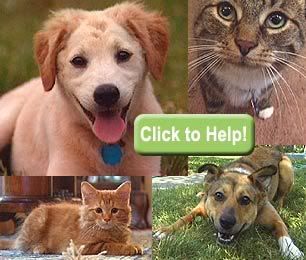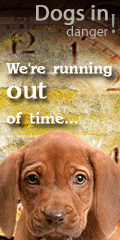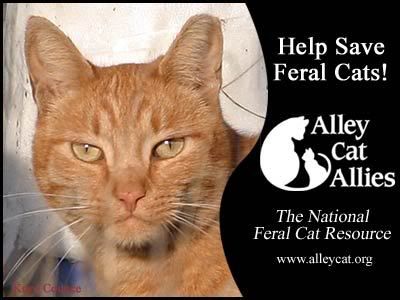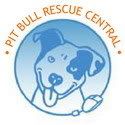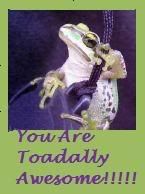Sadly, Minnesota has become a haven for large-scale dog and cat breeding facilities, due in large part to Minnesota's lack of regulation of such facilities.
Animal welfare organizations and concerned citizens throughout the state came together in an effort to promote legislation to regulate such operations, in the hope that fewer mills will come to the state, and that those already here will clean up their acts.
Senate File 7, introduced by Senator Betzold and House File 253, introduced by Representative Tom Tillberry, if passed by the Minnesota Legislature, would be an awesome step in the right direction toward eliminating the horrors of puppy and kitten mills.
To read the text of the bills check out these links:
S.F. No. 7, as introduced, The Puppy and Kitten Mill Bill
H.F. No. 253, as introduced, The Puppy and Kitten Mill
From AnimalFolksMN's website, the highlights of this legislation include:
• Licensing
Requires dog and cat breeders in Minnesota to be licensed. A “breeder” is defined as “a person, other than a hobby breeder, who possesses animals and is engaged in the business of breeding animals for direct or indirect sale or for exchange in return for consideration, and who possesses six or more adult intact female animals for the purpose of breeding."NOTE: The above is often misinterpreted. This legislation applies to breeders who “possess six or more adult intact females for the purpose of breeding.” If a breeder has 5 or less adult intact females, it does not apply to them. If a breeder is not in the business of breeding (i.e. dogs used for mushing or a hobby breeder who breeds for show) and possesses 5 or less adult intact breeding females, this legislation does not apply to them. Hobby breeders are exempt.
REASONING: There is no licensing of dog and cat breeders by the State of Minnesota. As a result, the State does not and cannot know if animals in breeding facilities are properly cared for.
ALSO: The USDA (United States Department of Agriculture), per the Animal Welfare Act (AWA), does license some breeders — those with more than three intact females who sell wholesale. Note the word 'wholesale' — breeders who sell directly to consumers through websites, parking lots or classified ads are not required to be licensed by the USDA. This is a loophole in the Animal Welfare Act, considering the fact that many breeders are now using websites. It's also another reason for state licensing of dog and cat breeders.
• Inspections
Gives Minnesota the authority to inspect dog and cat breeding facilities, including both USDA-licensed facilities and totally unregulated facilities.NOTE: There are 2.5 USDA inspectors in Minnesota to inspect and regulate approximately 220 USDA-licensed facilities throughout our State. These inspectors inspect USDA-licensed breeders and dealers (dogs, cats, exotics and other animals) as well as exhibitors, zoos, research laboratories, circuses and animals transported via commercial airlines. Due to limited staffing and from reviewing inspection reports (available through the Freedom of Information Act), the number of inspections are infrequent. Also, as stated above, the Animal Welfare Act (AWA) does not license breeders who sell directly to the public through the Internet, classified ads, parking lots or other means; therefore, there are no inspections of breeding facilities that are not required to be USDA-licensed. Commercial breeders are aware of this loophole; some have chosen not to re-new or apply for a USDA license, so avoiding inspection.
REASONING: This bill will close the AWA loophole. It will allow for additional inspectors and inspections of all USDA-licensed and non-USDA-licensed breeders (except "hobby breeders") by the State of Minnesota, and will, for the first time, inspect facilities that have gone unchecked.
• Enforcement
Gives Minnesota the authority to enforce both State and USDA laws, standards, rules and regulations.NOTE: There is no State law that gives Minnesota the authority to enforce breeding and care standards.
REASONING: This bill closes the enforcement gap. Upon receiving a complaint, the Minnesota Board of Animal Health, a local animal control authority, peace officer or humane agent will be given the authority to investigate the complaint. Correction orders can be issued, requiring a breeder to correct a violation of federal and state statutes, rules and regulations governing breeding facilities. An order may also be issued to cease a practice if its continuation would result in an immediate risk to animal welfare or public health. The State would have the authority to refuse to re-issue a license, suspend or revoke a license if the breeder fails to act on certain orders (i.e. doesn’t comply, doesn’t pay, commits felony cruelty), as defined in the law.
• Penalties
Imposes civil and criminal penalties for violations.REASONING: This bill creates misdemeanors for specific violations committed by unscrupulous dog and cat breeders. It also imposes administrative penalties.
After approximately one and one-half hours of people testifying in support and in opposition to the bill, the Committee voted to “table” S.F. 7. This means a final vote for or against the bill was not taken at this hearing. Instead, it was laid on the table waiting for further action, which means it will need to be called back for another hearing in the same Committee in order to finish the discussion.
For all Minnesotan animal lovers, your telephone calls, e-mails, and letters to your senators and representatives are needed. To find out more information about who to contact, when to contact them, and what to say, visit Animal Folks Minnesota. To receive updates on the status of this legislation and how you can help, please visit Animal Folks Minnesota, and sign up for their mailing list.

